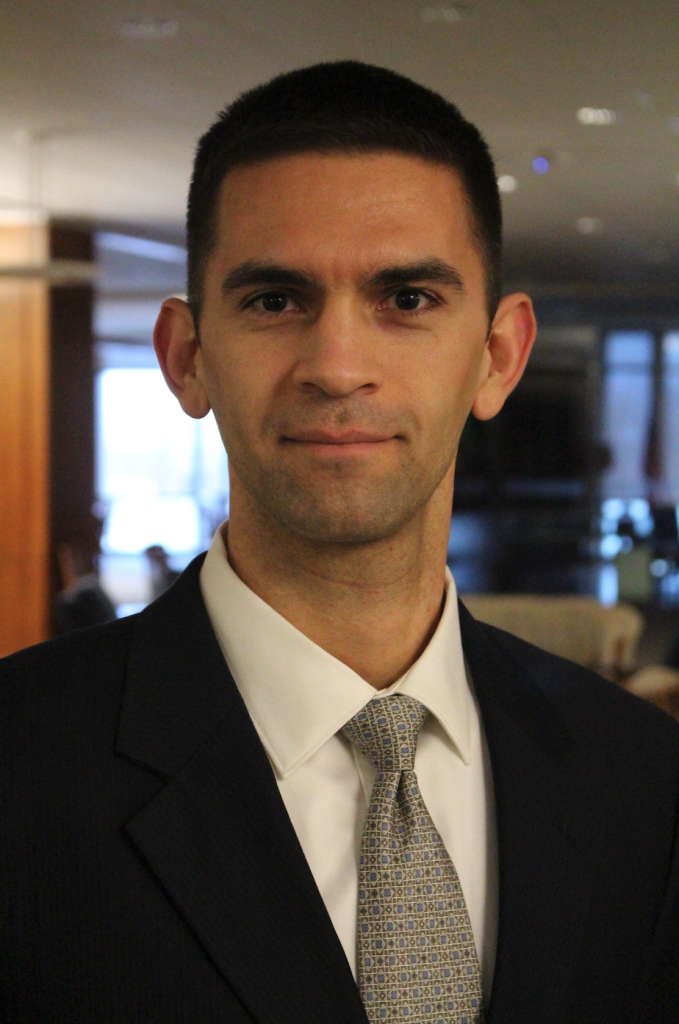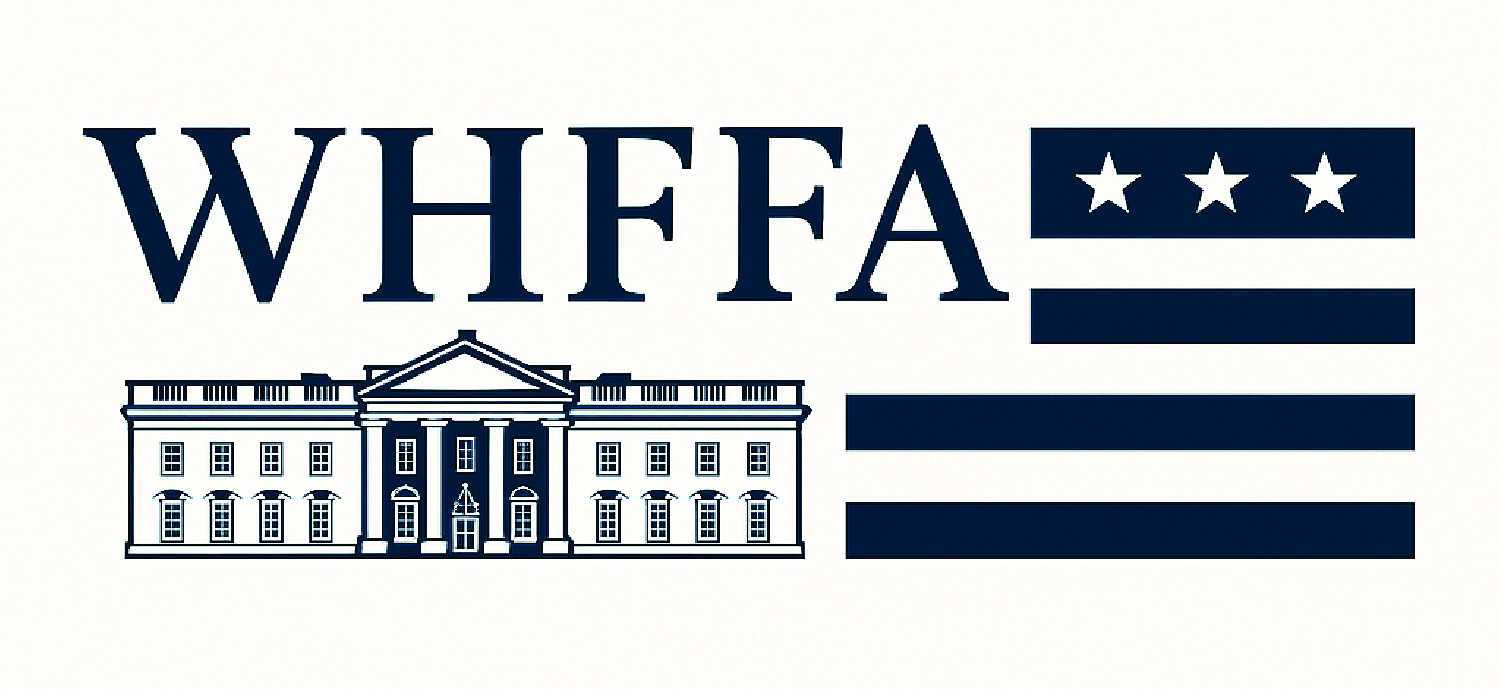WHF Profile: Mat Zulauf (2017-18)

Can you tell us about yourself and your work before the White House Fellowship?
I grew up in rural/suburban Michigan. Both of my parents were public school teachers. I went to the Air Force Academy for a challenge and a good education. I then became a pilot in the Air Force.
How did you hear about the White House Fellows Program and what made you decide to apply?
One of my college professors was a fellow and mentioned the program. It was the only time I ever heard of the program prior to that or after for several years. At the time I thought, “Oh that sounds like a really neat program, perhaps I could apply in ten years once I have some real world experience and clarity of vision.”
What goals were you hoping to achieve through the Fellows program?
In my time in the military, I saw many instances of the government not effectively or efficiently managing programs within and between government agencies and commercial companies. I think many of the great challenges of our time exist in these seems. Purely commercial or purely government solutions are one class of problems, and collaborative challenges are another class. There is such opportunity to make such a big difference in certain spaces. I saw a great need to improve the creativity and competence of the federal workforce to get better results and at lower cost for U.S. society. I thought if I could learn more and participate a little at higher levels of the U.S. government, I could try to learn how one day I might be able to make a difference in more effectively bridging efforts between the public and private sectors.
Where were you placed and what was the focus of your work?
I was placed in the White House Office of the Staff Secretary, a very unique placement. In the administration at the time, the Staff Sec office ensured U.S. domestic and international policies were coordinated across all Federal departments and agencies, and Presidential Executive Orders, Proclamations, speeches, press releases, and correspondence were accurate, concise, and sound as a matter of policy and law. We also created the President’s evening briefing book.
What was your fellowship class like?
We are an amazing group of people with diverse personal and professional backgrounds and talents, united by our desire to serve our communities and country and maximize the potential of our American experiment. We have a strong bond and had so many frank conversations. I learned so much from their unique and informed perspectives.
What did you do immediately after the Fellowship?
Many of my classmates used the fellowship as an opportunity to pivot professionally to a different line of work. Others furthered their education and credentials to prepare for the future. Us military members took the next assignments our Services gave us.
How did the trajectory of your life and work change after the White House Fellowship?
Military service and rank structure doesn’t allow for significant or immediate changes in trajectory. I think over time there will be more impact. The big difference is the professional network of all White House Fellows and their networks is now at the ready, to make contacts, share information, or get things done. I look forward to this being a source of unique insights and opportunities to contribute my entire life.
What are you most proud of achieving since the fellowship?
Two things. I have been working in a very special office in the Pentagon, doing some very special work, which could be very significant. Also, I have been able to mention the WHF program to talented professionals I meet. I’ve discussed the fellowship with many candidates who are interested in the program and want to apply, or who have been selected for regional and national selection events. It is intrinsically rewarding to continue to cycle of service John Gardner started with our program.
Can you tell us about peers and mentors who helped you on this path?
We are all products of those around us throughout our lives. I think I combine the mentality of service to society, and specifically the United States, that many military members embrace, as well as the inquisitiveness and desire to achieve great things for society that many physicists and engineers harbor. I’m glad I have been surrounded by intelligent, articulate, humble people my whole life who focus on what truly matters in our personal lives and in our unique societal place in history, and they took the time to share their philosophy and wisdom with me.
What are you working on now?
I am trying to characterize, describe, and understand what future war might look like, what it might be fought over, what equipment and operational concepts we, our allies, and our adversaries might have, and how we can find advantage and maintain our national security. I’m also focusing on what activities or conditions result in long-term comprehensive national power, and how nations can influence those conditions by crafting and then executing a national strategy.
Are there any books you’d recommend for those interested in doing similar work?
I think anyone reading this should read John Gardner’s book On Leadership.
It sounds like all of those experiences gave you a set of new skills that you might not have had in your previous role. How did you translate those skills into your career and work now?
You definitely gain a much broader perspective from the fellowship on our country, our government, and the world. The world also shrinks a little because your network becomes so much broader and stronger, you are only two connections away from a lot of interesting and amazing people and organizations, with opportunities to really make a difference.
Could you reflect on a learning experience during your Fellowship experience?
I had many amazing learning experiences. I thoroughly enjoyed our twice weekly off the record lunch discussions with senior government leaders, diplomats, and business leaders. One narrow but broadly applicable observation from my placement was a shift in my philosophy regarding “attention to detail,” a core Air Force philosophy that helps us achieve “excellence in all we do.” Prior to the fellowship, I internalized attention to detail as thoroughly understanding all angles of every aspect of every task or subject that was part of your professional responsibility (this is also a character trait they teach in pilot training). During my fellowship placement, I came to learn that attention to detail in the higher leadership functions of government means being privy to everything that is happening everywhere that is NOT within your direct professional responsibility. Knowing what was going on at each agency and department in the federal government, who was working on it, what the previous and next steps were, significantly enabled me do the work of our office more effectively. That lesson has remained true in my current work. To lead an organization forward into new territory, it helps to have a national or global picture of people and organizations and their charters, capabilities, and personalities.
Have you and your classmates remained close since your Fellowship year?
It was remarkable how quickly we bonded and how much we shared our fellowship year. As time goes on the frequency of our interactions subsides, and our interactions aren’t as personal, but when we get together the bond is still as strong as it was the last day of our fellowship year.
What advice would you give to prospective applicants?
If you are interested in public service and feel you have a vision and the skills and drive to make a difference for humanity, please share your story with us and apply. You miss 100% of the shots you don’t take.
